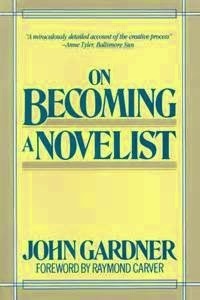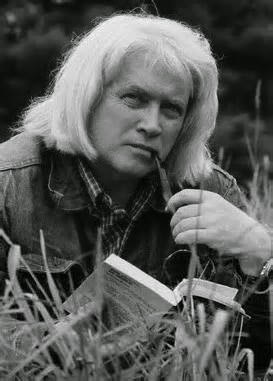How is John Gardner like cilantro?
I’m about a quarter of the way through John Gardner’s On Becoming a Novelist. Probably about 15-20 years ago, I read other Gardner works: Grendel, Freddie’s Book, and Nickel Mountain, as well as The Art of Fiction.

I confess I’m intimidated by Gardner. I want to like his work more than I do. It’s kind of like my view on The Beatles, Elvis Presley, cilantro, and hoppy beer – I can respect the craft but they’re never going to be my favorites.

The first section of On Becoming a Novelist focuses on “The Writer’s Nature.” Gardner writes about his own experience:
“I worked more hours at my fiction than anyone else I knew, and I was lavishly praised by friends and teachers, even published a little, but I was dissatisfied, and I knew my dissatisfaction was not just churlishness. . . . I had by this time already faced the painful truth every committed young writer must eventually face, that he’s on his own. Teachers and editors may give bits of good advice, but they usually do not care as much as does the writer himself about his future, and they are far from infallible; … But now nothing was clearer than that I must figure out on my own what was wrong with my fiction.”
I can relate. Gardner articulates my own struggles as a writer, and how I have to learn to trust my abilities to develop my craft.
Yet my chief complaint against Gardner is his passionately superior world view about what constitutes true literature. Even as he describes how a writer must figure out her craft on her own, I get the sense Gardner would be hanging in the background, ready to point out where her mistakes are.
Still, I’m appreciating On Becoming a Novelist, and I’m keeping myself open to its lessons. The trick is to take what is useful for me and to disregard Gardner’s critical edge.

I confess I’m intimidated by Gardner. I want to like his work more than I do. It’s kind of like my view on The Beatles, Elvis Presley, cilantro, and hoppy beer – I can respect the craft but they’re never going to be my favorites.

The first section of On Becoming a Novelist focuses on “The Writer’s Nature.” Gardner writes about his own experience:
“I worked more hours at my fiction than anyone else I knew, and I was lavishly praised by friends and teachers, even published a little, but I was dissatisfied, and I knew my dissatisfaction was not just churlishness. . . . I had by this time already faced the painful truth every committed young writer must eventually face, that he’s on his own. Teachers and editors may give bits of good advice, but they usually do not care as much as does the writer himself about his future, and they are far from infallible; … But now nothing was clearer than that I must figure out on my own what was wrong with my fiction.”
I can relate. Gardner articulates my own struggles as a writer, and how I have to learn to trust my abilities to develop my craft.
Yet my chief complaint against Gardner is his passionately superior world view about what constitutes true literature. Even as he describes how a writer must figure out her craft on her own, I get the sense Gardner would be hanging in the background, ready to point out where her mistakes are.
Still, I’m appreciating On Becoming a Novelist, and I’m keeping myself open to its lessons. The trick is to take what is useful for me and to disregard Gardner’s critical edge.
Published on August 25, 2014 08:02
No comments have been added yet.



